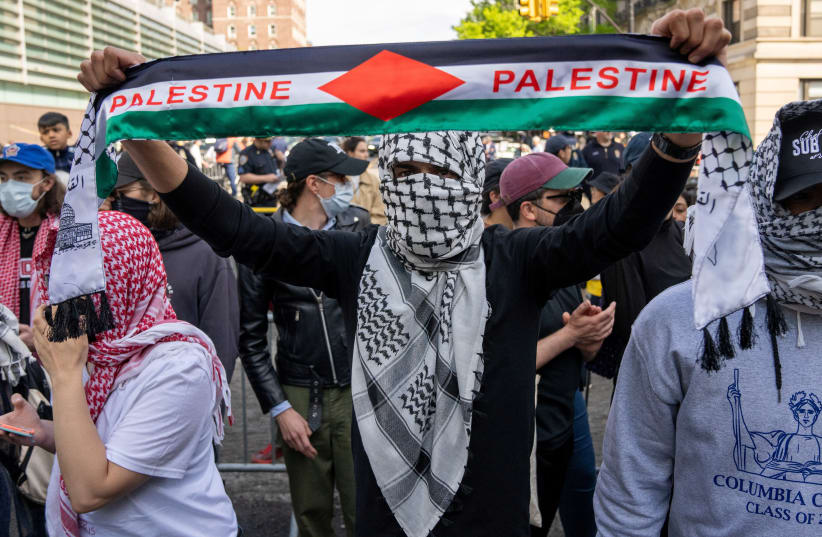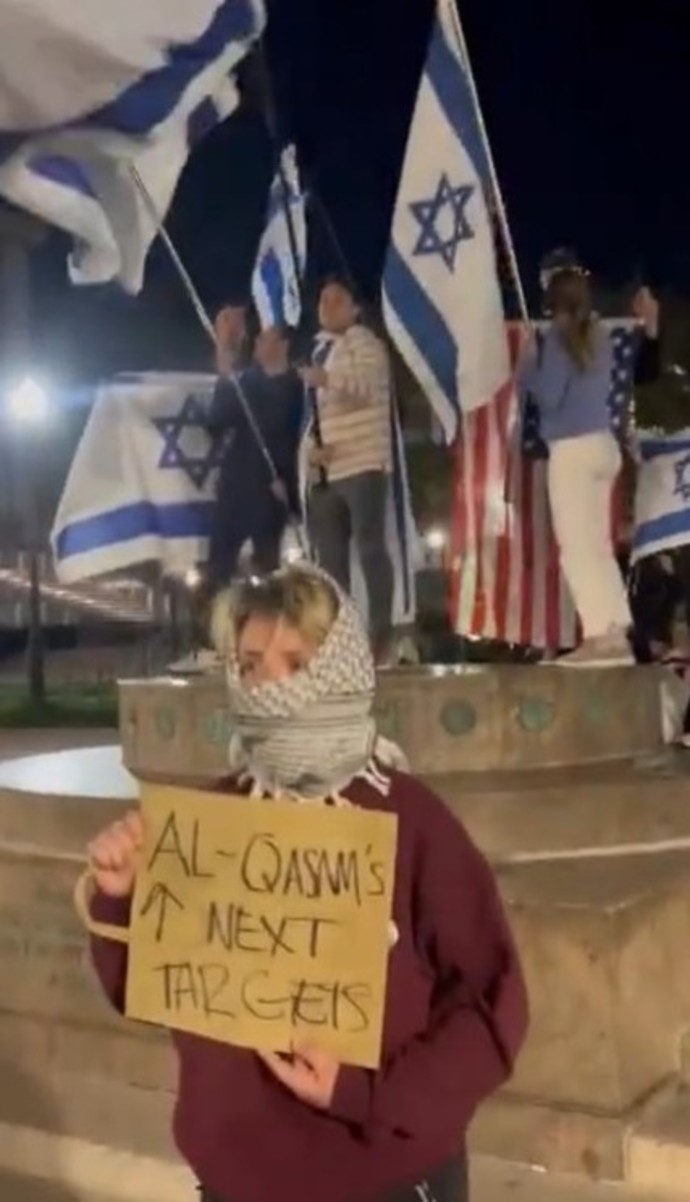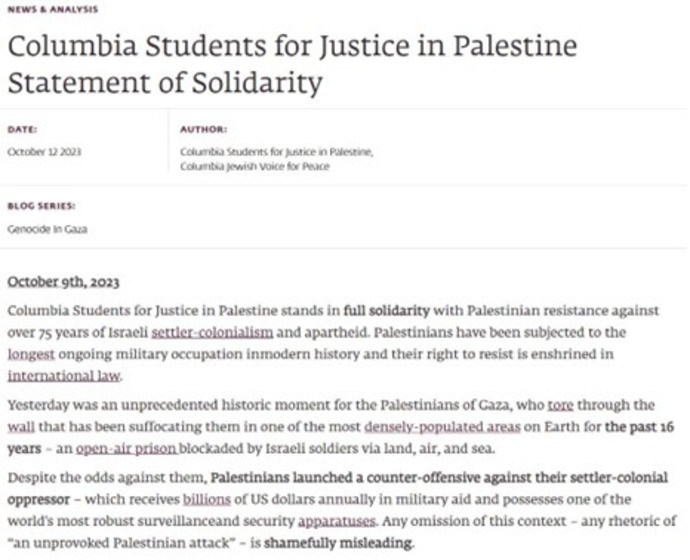Antisemitism has reached an alarming boiling point at encampments and protests for Gaza across many American campuses this past month. Finishing my first year at Columbia University, I feel my college experience is being defined by the constant chants I hear calling for an intifada, and the stories of friends who were verbally and physically assaulted on school property.
To escape the fate of our friends, many of my Jewish peers and I have fearfully avoided Columbia’s main campus since the encampments were established. All students should be able to walk around campus without fearing for their physical or mental well-being. Jewish students should not be threatened because other students criticize the war between Israel and Hamas.
Unfortunately, this is the intimidating situation Jewish students face at Columbia and other institutions of higher learning. I am deeply disappointed in my school’s failure to protect me, but I am even more disappointed in my peers for refusing to remove antisemitic rhetoric from their movement.
With “from the river to the sea, Palestine will be free,” recently classified as hate speech by the House of Representatives, one would think the protesters would refrain from chanting antisemitic phrases and instead criticize the war or the Israeli government without targeting Jews or Israelis. This vision is far from the reality on campuses.
In response to a proposed alteration to a chant, a member of Columbia’s Students for Justice in Palestine (SJP) chapter posted on their Instagram story, “Stop complaining [about] our chants… if it makes you uncomfortable then feel free to leave.” Many other students echoed this unwillingness to change their chants, arguing that supporting Gaza takes priority over “making students comfortable.” This logic is deeply flawed; there is no correlation between the conditions Palestinians in Gaza face and the safety of Jewish students on campuses.
Protesters can be equally productive in raising support for Palestinians without targeting Jews, perhaps even more so. There could be a stronger voice promoting an end to the crisis in Gaza if Jewish Zionists who also care about Palestinians in danger felt comfortable joining rallies without feeling threatened.
The underlying antisemitism in some aspects of the pro-Palestinian movement is part of another issue plaguing college campuses: a growing polarization between those who support Israel and those who do not. Among Zionists and anti-Zionists alike, there is an unwillingness to criticize one’s own “side.” For instance, while some pro-Palestinian students fail to condemn calls for violence, some pro-Israel students fail to acknowledge the harmful rhetoric from extremists on their side.
This problem is partially attributed to the fact that many leaders of organizations like Columbia SJP express extreme perspectives. Columbia SJP released a post on Instagram on October 9th declaring “full solidarity with Palestinian resistance,” referring to Hamas’ attacks against Israel on October 7th. Extremism fosters an environment where people avoid vocalizing their true opinions and instead represent the movement’s entire belief system due to fear of being rejected. Because so many students have claimed a strong alliance with their respective “sides,” peaceful, productive dialogue between Zionists and anti-Zionists has become virtually impossible.
As university students, we must make it a priority to respect those with differing viewpoints and take on controversial topics with maturity and curiosity. If we take this approach, we will likely discover more similarities in our respective belief systems than we previously assumed.
Sophie Kasson is a first-year student in the Double Degree program between Barnard College of Columbia University and the Jewish Theological Seminary of America. She is an active member of Students Supporting Israel (SSI) and Meor, a Jewish learning fellowship on campus.
This op-ed is published in partnership with a coalition of organizations that fight antisemitism across the world. Read the previous article by Adam Milstein.


